The Catholic Teacher And the Final Judgement
Let’s be honest. Some parts of Revelation are rather….descriptive! Lakes of fire, dragons and the occasional reference to eternal torment. In today’s episode we take today’s Mass reading and blow up the heresy of ‘universal salvation’ and remind ourselves of the crucial importance of our daily choices and decisions. What we actually ‘DO’ is much more important than what we ‘intend’. I also discuss the crucial importance of trying to build character and virtue in our students.
Author
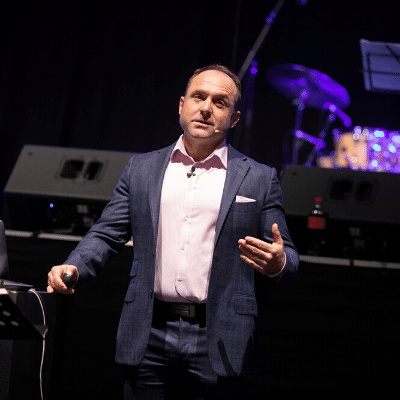
Jonathan Doyle
Jonathan Doyle is an international speaker, author, businessman and executive coach who has spoken around the world to more than 400,000 people on topics related to personal development, peak performance, leadership, Catholic school evangelisation, relationships and much more.
His recent keynote addresses include the NCEA National Convention in St. Louis Missouri to 10,000 delegates and he is a frequent keynote speaker in the US, Asia and Europe.
He is also the founder of an influential education and media business that delivers training content to hundreds of organisations and thousands of individuals around the world on a weekly basis.
Jonathan holds an undergraduate degree in education from the University of Canberra, a Masters Degree in Leadership and Management from the University of Newcastle and has also undertaken post-graduate study in philosophical anthropology.
He is the author of numerous books on relationships and peak performance and each day shares these same ideas with a large global audience via The Daily Podcast with Jonathan Doyle.
Finishing Strong is a loud and clear call for every young person to make the very best of their final years of school. Based on hundreds of seminars around the world to a huge number of students Jonathan Doyle offers powerful, practical advice that can make a major difference.
Each chapter offers inspiring stories, clear principles and actionable steps for identifying and moving forward in study, life, friendships and each key area of life.
Jonathan also includes journal questions and guided reflections at the end of each chapter to maximise learning and ensure the ideas and principles can be made real, personal and achievable.
If you want to help your child or students make the very best of their final years of high school then it;s time to help them finish strong!
10,000 Teachers Have This Book Already!
How can we help teachers avoid burnout, cynicism and exhaustion?
How can the Catholic teacher live their vocation more fully, share the faith with young people and a make a difference in the world?
Over the last two decades, Jonathan Doyle has reached hundreds of thousands of Catholic teachers and leaders around the world with a message of hope and encouragement.
In Tools and Fuels, Jonathan offers a compelling vision of what Catholic schools can be in the 21st century and practical and inspiring strategies about the way each Catholic teacher can play their part in living their vocation, reaching young people and saving the world.
Find out more HERE
TRANSCRIPT
Catholic Daily Nov 27 2020
The Catholic Teacher And the Final Judgement
📍 Well, Hey everybody. Jonathan Doyle with you. Once again. Welcome aboard friends to the Catholic teacher daily podcast. Hope you’re doing well, wherever you are in the world. It’s another beautiful day here. I know that somebody will be listening in parts of the world where it’s a snowing or something, but we’ve had a long winter and it’s just beautiful to be enjoying the start of a good summary. I got out this morning at a 25 kilometer training run.
I’m feeling pretty good. I’m feeling pretty good now. Not a hell of a field in about an hour’s time. But friends. I really want to share a couple of key things with you today. And the first thing comes from the daily readings. And if you’ve ever heard me speak live, if you’ve been there, when I’m speaking, you will have heard me talk about the app that I use.
Each day, simply call daily readings. And it just gives me that exposure each day. To scripture. So I think if we have this kind of structure in our lives, Uh, as a, as Catholic educators, it helps us, it helps us to be open to the Holy spirit. It helps. Us to be available for God to speak to us. You know, there’s that beautiful quote from the second Vatican council where, you know, it says that through the sacred word, through the sacred scriptures, that God comes like a father to speak to the, his children. It’s a really beautiful thing. And if.
If we’re not having that access to scripture on a regular basis, then it’s hard for us to hear self. And we say, God never speaks to me. I never know what God wants. I spent years. Kind of expecting a disembodied voice to a boom out of the heavens and give me answers to all my challenges and problems. And it never really happened.
But I slowly learned that he is speaking all the time. And one of the crucial ways that he does that. It’s through psychic scripture. Today’s readings. Come, uh, from the book of revelation. And I don’t think many of us spend a lot of time in the book of revelation. Today’s reading is from chapter 20. Am I going to read it? All of it to you, but, uh,
We’re going to skip the parts about dragons, Satan lakes of fire. Punishment, torment. We’re going to, we’re going to skip that part and it’s all there. You can read it and I don’t want to minimize it. But, uh, you know, This is a positive podcast and. I want to keep it light. So here it is, uh, chapter 20 of revelation, verse 13. And I wanted to share just this one little line here where it says, and each person was judged according to what.
They had done. So each person was judged according to what they had done. Now, a couple of points on this. You may or may not be familiar with the concept of something called universal salvation. Which is effectively a heresy. It’s basically the idea that everybody goes to heaven. If God is completely loving and, uh, and you know, totally forgiving, then how could he possibly consign anyone to hell? And that your students are probably going to ask this at some stage, or they have asked that at some stage.
But interestingly, uh, God doesn’t consign anyone to hell. You might be familiar with a great quote from CS Lewis, where he said the irony of hell is that the Gates are wide open. So that the people that are there are people that directly, uh, I would hesitate to say indirectly, but deliberately. Resented and rejected God so profoundly. And so consistently that the choice of that rejection has permanent ramifications.
So you, have you ever been in a position in life where you really care about somebody and you love them and you want to help them, but they just won’t. Change or they won’t receive forgiveness or they just, uh, just pushing you away. I mean, eventually, even if you love them, you can only do so much, right. They have the freedom to choose to damage the relationship and to reject the relationship.
And I think we can all agree that in life we’ve definitely seen people who will, you know, the old saying cut off their nose to spite their face. Who, uh, uh, are so angry and full of resentment and bitterness that they will, you know, totally break relationship. And they will suffer, but they will choose to suffer rather than.
Moving to humility or seek forgiveness. So. It’s important that we understand this doctrine of universal salvation, because most of the kids in your class will probably be, you know, this is in the Kool-Aid right. This is in the air. We breathe that. You know, how could anybody be in hell? Well, the only people that are, there are people that really wanted to be.
But. The reason I’m sharing this with you. I’m desperately now trying to keep this light.
Is that this line from revelation in each person was judged according to what they had done, we need to regain the significance of human action. So what’s the old saying we judge. Uh, other people judge other people by their actions and we judge ourselves by our intentions. And how the people would just judge them by what they actually did. And we, we judge our self, but what we were hoping to do.
Or what we intended. So we need to regain the significance of acts because acts a significant they’re important and they shape who we are. And I want to lead with that. Just, I want to lead into the second thing. I want to talk about using that idea. But first. I want to remind you that. Each thing that you do. I mean, you’re going to, according to that scripture, this isn’t me having a rent. This is me just, just.
You know, building on sacred scripture, we’re going to be judged. We’re going to be, I mean, there’s multiple references through it all throughout scripture. Mother Teresa is going to be judged, you know? It where everybody will be judged. But what’s the criteria. It’s, it’s not so much what we thought or what we intended. It’s what we did.
Now. Our Protestant brothers and sisters would say, well, you know, really what it’s, what it’s going to be about is whether or not you accepted Jesus. As your personal Lord and savior, and that’s important. But Catholic theology also really puts a significant weight on our actions, what we do in the world.
And think about the culture that creates like in a Freudian analysis, it’s a problem, right? Because you know, people could get all sorts of hang ups and, uh, And become fixated on, uh, you know, the problem of scruples. And that’s been a real thing in the Catholic church. Hasn’t it? Many sites struggled with that. They were so terrified of thinking a bad thought or making a wrong action or completing a bad action that they.
Develop major anxiety problems. So we don’t want that. What we want is a healthy realization that acts a significant, and you know, they are. I mean, look at your close relationships in your own family. I mean, you can’t just go around saying and doing whatever you want. You know, whether you choose to be loving, gentle, forgiving, encouraging their different actions to being critical or mean, or selfish or aggressive in your own family. So we know intuitively that actions shape things.
So I want you to think about it this way.
Jesus tells us clearly, you know, and there was the, it was in the gospel just last week. Which was. That. You know the story of when, you know, when they say to Jesus, when did we see you, Paul? Wouldn’t we see you hungry. When did we see you? You know, see you in prison and visit you. And see you sick and come and care for you. And he said we was wherever you did that for the least of these.
You have a very privileged position as a Catholic educator. As a Catholic teacher. And that position means that you’re doing things each day. You’re choosing to prepare extra well for less than that, you hope will be a blessing to your students. You’re choosing to offer that word of encouragement. You’re choosing to not be critical when you know, it might wound a student.
See, these are actions. And it’s on these actions in many others that we’re going to be judged. So I want to encourage you that what you do really matters in the classroom. How you speak to your colleagues, how loving you are or how patient you are or how available you are. These are all human actions that have a lot of significance.
So. The older I get, I don’t feel a fear in my own spiritual life around. You know, living perfectly, but I, the longer I go on the spiritual life and an experienced grace, the more that I want to do, good things.
And this is the quest for holiness, right? This is the vocational quest for holiness in marriage, in parenting, in teaching. That we become someone through this process of actions. So again, We do this through grace, right? Because is it good if you’ve heard me speak? The heresy of Pelagianism. It was the heresy that OK. Jonathan Shaw, you right. Actions.
We’re going to be judged on what we do. So therefore we need to try really, really, really hard. We need to, in our own strength force ourselves to be completely on top of everything. I want plagiarism does, is it empties to the cross of Christ of its power? Right. Because if you’re striving in your own strength to be perfect.
Then you don’t need a crucified savior. You just don’t, you don’t need grace. You don’t need sacraments. Cause you got this thing sorted.
You know, the wonderful Bishop when I spoke in, uh, in Boise. You know, he said, uh, you know, he said to the teachers there, he said, you’ve got to stop trying. To make Jesus unemployed. These are the greatest lines I’ve ever heard. Stop trying to make Jesus unemployed. We need the grace. So. We’re going to be judged by what we do.
Then we need to use our rational minds. We need to study scripture to know what it is that we should do. And then we should rely on grace and seek grace through prayer through sacraments, through scripture. To grow and to be empowered, to do what we should do. And the last thing I wanted to share and relate it to all this is, uh, again, quoting from Ryan toppings book, the case for Catholic education.
He says, as the catechism puts it aided by grace, is that word again, not ADA by effort. Aided by grace. The virtues forge. Character. And give facility in the practice of the good, it sounds a little complex, doesn’t it? But. The catechism telling it’s telling us that grace. Living the virtues and the virtues, the actions, I think of the Cardinal virtues, prudence, justice, temperance, and fortitude.
I mean, all of those things, actions, they real things. We do. We make prudent decisions. We make just decisions. We take just actions. We practice temperant decisions. We make courageous choices in the real world. So. What we’re trying to do in our students in a Catholic school is formed them in these virtues.
Help them understand that being Prudential, being temperate, being, just being courageous, those virtues. They shape character. And they real things. And what’s character. I was used to teach this in seminars, right? Character is the sum total of our choices. What’s our character. A character. Is the sum total of our choices.
We become what we choose. So can you see all these links sort of flowing? And that’s what the beauty of Catholicism is. That it’s been, it’s had 2000 years under grace. With imperfect people. Yes. To figure out how to live well and how to be human. In the image of Christ. That we need to make good choices.
We need to develop character. You know, cells and in our students, And we do it through grace, common sense reason, and then practice. All right. So do not underestimate my friend, the significance of what you are doing each day. Yes. What you’re thinking each day matters, but also very much what you’re doing.
That would have blessing that you’re going to offer today to a student, that extra mile that you will go in teaching the lesson and really trying to help your students grow academically. These things are really significant and they are important. All right. That’s it from me. Thank you for what you’re doing every single day as a Catholic teacher, do me a favor, please make sure you’ve subscribed to the podcast.
Please make sure you share it with a few other Catholic teachers. That’s a real help. If you could leave a rating or review, that would be really helpful. And everything else is on the website@onecatholicteacher.com. One Catholic teacher.com. Especially the resources tab. Go check out that resources tab. It’s a, it’s got the going deeper trial. I want you to take that free trial. It’s really important that you do that. If you haven’t used it before.
So third, a three week free trial of the going deeper teacher program. So go grab that on the resources page. At one Catholic teacher.com. Listen, God bless you. I’m really 📍 grateful for what you’re doing as a Catholic teacher. God sees every single thing that you’re doing. He’s with you. He wants to empower you, encourage you, support you resource you bless you and move you forward. As you serve his precious kids. All right friends my name’s jonathan doyle this has been the catholic teacher daily podcast and i’ll have another message for you tomorrow
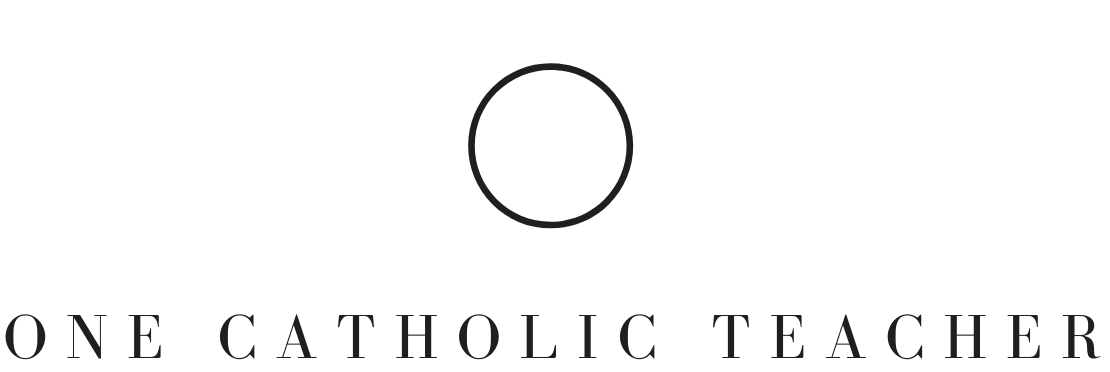



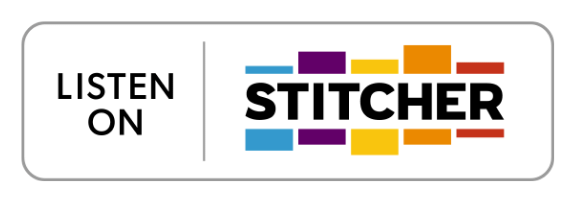
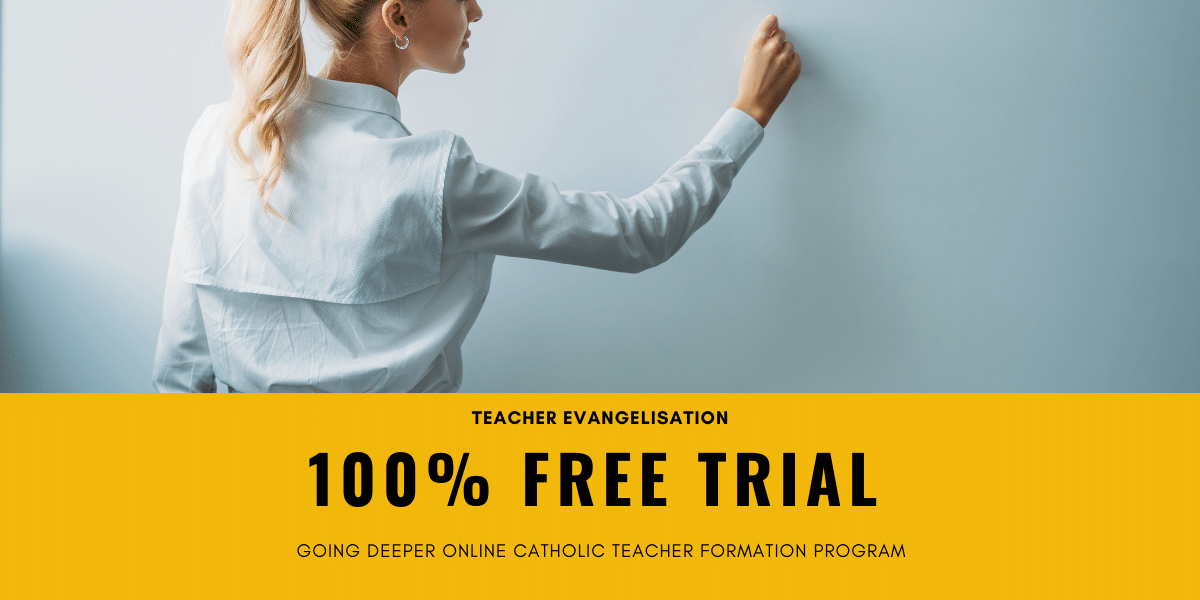
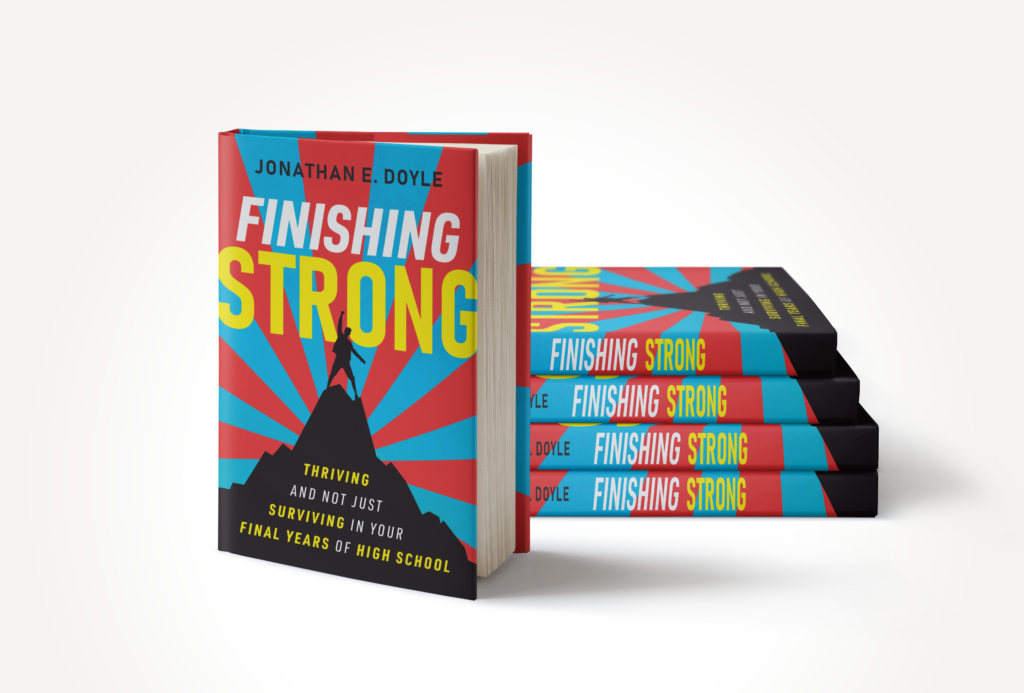





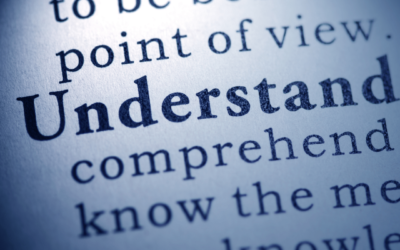




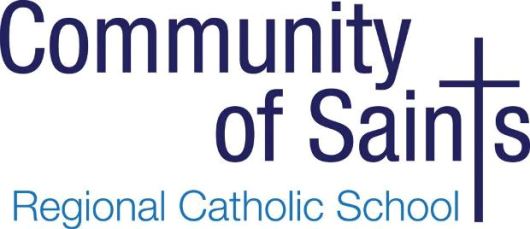

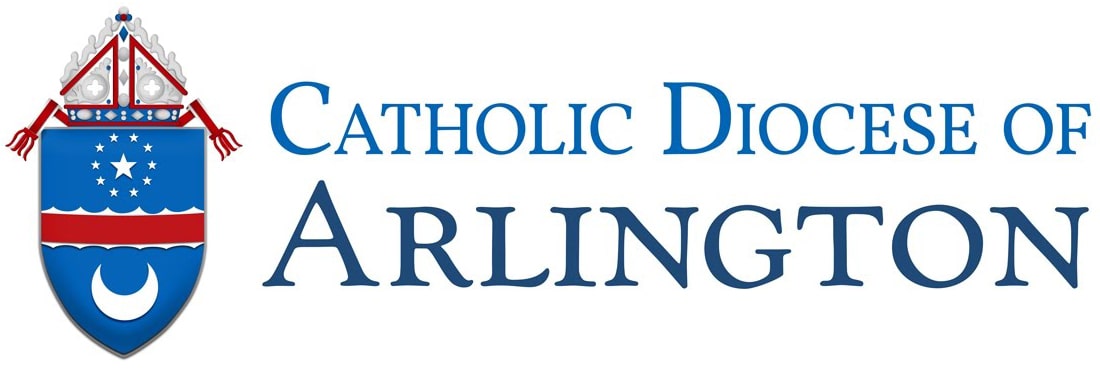
0 Comments